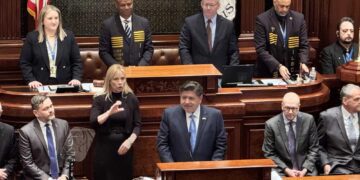By Thomas Sowell -
“[W]hen some natural disaster such as a hurricane or flood suddenly destroys many homes in a given area, the price of hotel rooms in that area may suddenly rise, as many people compete for a limited number of rooms in order to avoid sleeping outdoors or having to double up with relatives and friends, or having to relocate out of the community. People who charge higher prices for hotel rooms, or for other things in short supply in the wake of some disaster, are especially likely to be condemned for ‘greed,’ but in fact the relationship between supply and demand has changed. Prices are simply performing one of their most important functions—rationing scarce resources. When some disaster suddenly makes those resources even more scarce than usual, it is important that prices reflect that underlying reality, so as to reduce the demands that each individual makes on the reduces supply.
“Regardless of what hotel owners charge, a sudden and widespread destruction of housing in a given area means that there may not be nearly enough hotel rooms for all the displaced people to get the kinds of accommodations they would like. If prices had remained at their previous levels after the hurricane, a family of four might well rent two rooms—one for the parents and one for children. But when hotel prices shoot up well beyond their usual level, all four family members may crowd into one room, in order to save money, leaving the other room for other people who have likewise lost their homes and are equally in need of shelter. The more stringent scarcity of housing in the wake of a widespread destruction of homes is inherent, even if temporary, and prices merely reflect that underlying reality. If the government were to impose price controls under these conditions, then those who happened to get to the hotels first would take up more space and leave more latecomers without a place to sleep indoors in that community. […]
“In short, prices force people to share, whether or not they are aware of sharing. Prices perform this function both in normal times and in emergency times. While sharply higher prices may be resented during emergencies, their functions are even more urgently needed at such times.” [Thomas Sowell, Basic Economics: A Citizens Guide to the Economy, Basic Books, 2004, pp. 18-19.]
And Don Boudreaux explains it in an open letter to the Texas Attorney General.
“Government intervention is often justified as a means of correcting ‘market failure.’ But by enforcing prohibitions on ‘price gouging’ your office causes market failure. Penalizing merchants who raise the prices of goods and services prevents markets from truthfully conveying an unfortunate but undeniable truth – namely, the natural disaster caused available supplies of goods and services to fall significantly relative to the demand for those goods and services. By forcibly keeping ‘legal’ prices lower than their actual market values, you not only encourage black markets and other corrupt and corrupting processes, you obstruct the information and incentives that are necessary both to persuade consumers to now use those goods and services more sparingly, and to spur suppliers from around the world to rush to the devastated areas additional supplies of those goods and services.” [Café Hayek]







